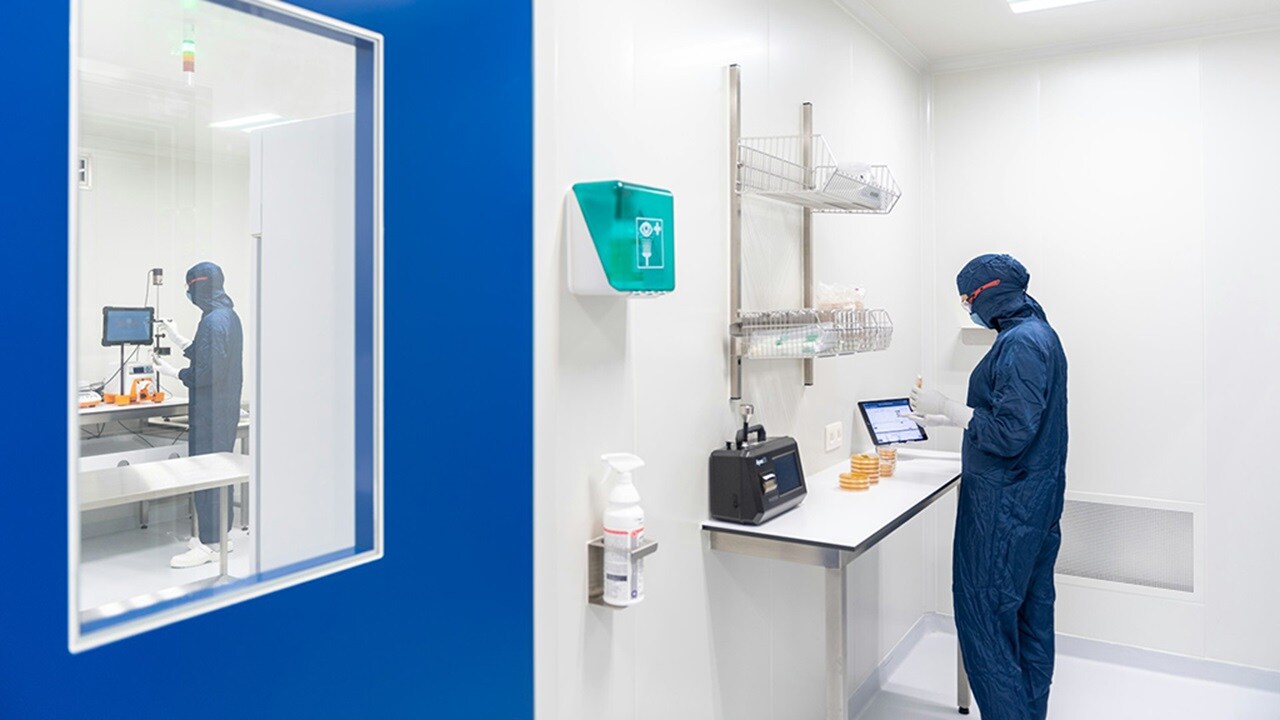When looking into the extensive transformative powers of artificial intelligence (AI) for logistics, the last two years have shown the incredible potential this technology can and will carry for supporting customs, enhancing visibility on the product flow, assisting with greenhouse gas (GHG) emissions reductions, providing data accuracy and much more.
Considering the key ways in which artificial intelligence can power supply chains, one of the sectors that is researching its use is the pharmaceutical industry. According to Eularis, a global network of experts working to turn complex pharmaceutical challenges into growth opportunities using AI and technology, “the industry faces challenges in leveraging its vast data resources, as information often exists in isolated silos and traditional approaches struggle to keep up with the scale and complexity of data”. Moreover, a research paper titled “Artificial Intelligence (AI) in Pharmacy: An Overview of Innovations” by several researchers of joint Universities published by The National Center for Biotechnology, states “AI has come a long way in healthcare, having played significant roles in data and information storage and management – such as patient medical histories, medicine stocks, sale records, and so on”.
Looking into the many ways in which artificial intelligence can help the pharmaceutical industry, logistics also takes centre stage. Given its use of both dry containers and cold chain solutions, the pharmaceutical supply chain is starting therefore to consider the use of AI-powered technology to optimise its efficiency. But what exactly are the opportunities? How can artificial intelligence change the pharmaceutical industry?
Artificial intelligence in the pharmaceutical industry
What is AI in pharma? Why should pharma use AI? Easily put, the use of AI could be the answer to current challenges present in pharmaceutical supply chains to collect, quickly analyse and then utilise vast amounts of disconnected data. Recent news confirms that what the pharmaceutical industry, and its supply chains, need the most is quality management. Data can surely be key in propelling the necessary quality controls, but it also has a vital purpose in making sure that pharmaceutical and healthcare products are safely transported and handled. “Biopharma supply chains have to meet the expectations of a complex range of stakeholders, comprising governments, payers, healthcare providers, national and international regulators, and patients with complex and varied needs” explains a recent report from Deloitte Centre for Health Solutions on Intelligent drug supply chains, continuing with “advanced AI technologies, including predictive analytics, can help track drugs throughout the supply chain and enable proactive and timely interventions when any issues arise”.
When it comes to analysing the opportunities presented by AI, what are the key trends to watch out for? Here are six to consider:
How can artificial intelligence (AI) change pharma?
- Quality control: AI technology can also be connected to software monitoring dosage, temperature deviation, ingredient types, etc. to support the development of a quality management system and better monitor the quality of goods, to make sure that the product integrity is maintained throughout the supply chain process.
- Raw material orchestration: The ingredients of medicines themselves, come from sources and laboratories across the world and there is therefore a pharmaceutical supply chain devoted to collecting and moving them to the right processing locations as well. Artificial intelligence can help support this part of the chain too, giving guidance on where and when it is best to collect and ship.
- Keeping data accurate: artificial intelligence can help optimise all accrued data on products (e.g.: generics vs clinical trials, etc.) which can in turn help with the needed logistics, specialising and diversifying according to the type of shipments which carry very different needs and transit times.
- Demand forecasting: Machine Learning (ML) and AI can be utilised in the pharmaceutical sector to precisely monitor inventory and rectify manufacturing. Pharmaceutical Technology supports this point by adding “AI’s capacity to analyse vast data sets can significantly improve demand forecasting, anticipate supply chain disruptions, and even refine patient trial processes through synthesised data”.
- Inventory status: AI-powered demand forecasting can also help companies anticipate changes in consumer behaviour. Moreover, the use of AI technology can support pharmaceutical supply chains with inventory levels. Eularis confirms this stating that “pharmaceutical companies operate within a complex supply chain network bound by stringent regulations. AI plays a pivotal role in optimizing operations, enhancing efficiency, and automating decision-making processes.”
- Shipment and delivery: Pharmaceuticals are a unique commodity. Real-time data and its analysis can help a company to cooperate with their logistics providers (and the data on their end), to ensure dedicated setup is put in place. The use of artificial intelligence for pharma here can also support logistics with managing pre-notifications to ports and warehouses signalling that a specific cargo has priority given its medical content. All of these are just a few of the many examples of what AI support can bring when integrated into pharma logistics, to better understand and uncover hidden opportunities.
- Digital twin: artificial intelligence can be also used to boost the use of digital twins’ technology, when creating a virtual copy of a pharmaceutical trial or of a specific manufacturing pilot. In this case digital twin technology can feed the collected data to the AI tool that can in turn accelerate the analysis and reporting of results. “This process allows pharmaceutical companies and their supply chains to accelerate drug discovery and clinical trials, while increasing the efficiency and safety of their transportation” says Gaetan Van Exem, Global Vertical Head, Pharma and Healthcare at Maersk.

The topic of AI was prominent and clear at this year’s LogiPharma 2024 Conference. When sharing the insights from the event, the consensus was that “AI is not a futuristic fantasy; it's a game-changer poised to reshape the pharmaceutical supply chain in the coming year” said the organisers, adding that “companies that embrace AI are going to be well-positioned to navigate the complexities of the market, optimise resource allocation, and ultimately, deliver life-saving treatments to patients faster and more efficiently.”
In summary, visibility on product flow, GHG emissions, data quality and logistics are some of the key areas that AI can boost for the pharmaceutical industry. The AI phenomenon is not one that will be stopped, so companies need to get ahead of the curve and start utilising this technology, and their logistics providers need to do the same. “Forward-thinking LSPs must marry compliance with modern technology” confirms Pharmaceutical Technology, providing the latest technology and acting as an “ally in achieving supply chain optimisation, ensuring compliance and enhancing competitiveness in the global market by staying ahead of emerging trends”.
What is in sight for Pharma and AI?
When looking into the future, studies suggest the AI race will be a fierce one. According to Strategy &, part of the PwC network, “pharma companies that industrialize AI use cases completely across their organizations have the potential to double today’s operating profits by boosting revenues and reducing costs” adding that pharmaceutical companies could seize up to “$250bn of AI value potential”. Similarly, a projection by Mordor Intelligence states that “the pharmaceutical market is projected to grow at a CAGR of 42.68%, approximately equal to a $15 billion growth between 2024 to 2029.” Samuel Okon, Global Pharma & Healthcare Quality Manager at Maersk says “pharmaceutical companies are actively investing in new technologies such as blockchain and AI to improve visibility on product flow and traceability. This will eventually improve efficiency, secure product quality, minimise risk and enhance patient safety”. Surely, a plethora of opportunities provided by artificial intelligence in the pharmaceutical industry, that companies and logistics providers should start to grab to ensure medical patients can get the help they need, right when they need it the most.
Note: this article has been completely written by a human.
Click here to find out more about solutions for pharmaceutical supply chains.
未来,您想随时了解必读行业趋势吗?
您已经完成了,欢迎“登船”!
很抱歉,发送您的联系请求时出现问题。
请查看表单字段,确保所有已正确填写所有必填信息。如果问题仍然存在,请联系我们的支持团队以获得进一步的帮助。
未来,您想随时了解必读行业趋势吗?
使用此表格注册,即可直接在您的邮箱中接收我们的洞察见解,进入一个真正的综合物流世界。简单操作,即从我们为您量身定做的精选文章中获得启发,了解相关行业洞察信息。您可以随时取消订阅。
I agree to receive logistics related news and marketing updates by email, phone, messaging services (e.g. WhatsApp) and other digital platforms, including but not limited to social media (e.g., LinkedIn) from A. P. Moller-Maersk and its affiliated companies (see latest company overview). I understand that I can opt out of such Maersk communications at any time by clicking the unsubscribe link. To see how we use your personal data, please read our Privacy Notification.
By completing this form, you confirm that you agree to the use of your personal data by Maersk as described in our Privacy Notification.













